Uncategorized
-
 Astronomy
AstronomyAstronomers scrutinized last year’s eclipse. Here’s what they’ve learned
Astronomers observed the 2017 total solar eclipse from the ground and the air, and found some never-before-seen features of the sun’s atmosphere.
-
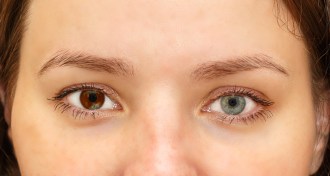 Genetics
GeneticsThe history of heredity makes for a fascinating, and chilling, read
From eugenics to gene editing, Carl Zimmer’s She Has Her Mother’s Laugh recounts genetics’ biggest discoveries.
-
 Health & Medicine
Health & MedicineKeeping people within U.S. blood pressure guidelines saves lives
Big reductions in heart attacks, strokes and deaths may be possible under 2017 blood pressure guidelines.
-
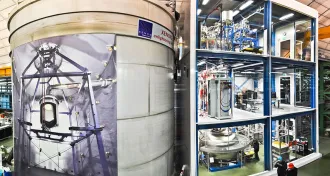 Particle Physics
Particle PhysicsDark matter particles elude scientists in the biggest search of its kind
The XENON1T experiment saw no signs of hypothetical dark matter particles called WIMPs.
-
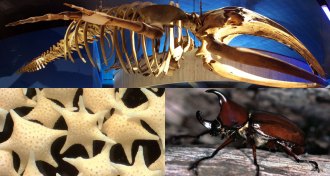 Life
LifeSkeletons come in many shapes and sizes
In Skeletons, two paleobiologists recount how and why skeletons evolved, as well as the variety of forms they take and the many purposes they serve.
By Sid Perkins -
 Health & Medicine
Health & MedicineEven in the shade, a car’s interior can get lethally hot
A car’s interior can get lethally hot on summer days, even when it’s parked in the shade.
-
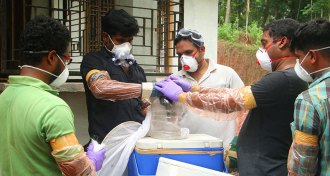 Health & Medicine
Health & MedicineHere’s what we know about the deadly Nipah virus
The deadly and rare Nipah virus has killed at least 11 people in southern India, causing concern among epidemiologists.
By Maanvi Singh -
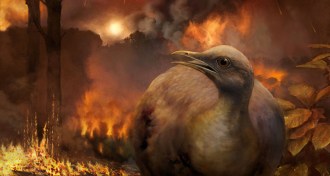 Paleontology
PaleontologyHow birds may have escaped the dino-killing asteroid impact
A tree-loving lifestyle became a risk for ancient birds in a world-changing catastrophe.
By Susan Milius -
 Paleontology
PaleontologyThe Chicxulub asteroid impact might have set off 100,000 years of global warming
About 66 million years ago, the Chicxulub asteroid impact set off 100,000 years of global warming, an analysis of oxygen in fish fossils suggests.
-
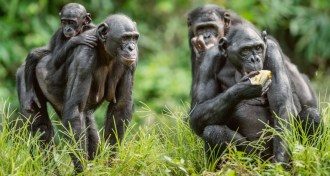 Animals
AnimalsPregnant bonobos get a little delivery help from their friends
As in humans, female bonobos become helpers for mothers giving birth, data from captive apes suggest.
By Bruce Bower -
 Astronomy
AstronomyPlasma rain in the sun’s atmosphere falls in surprising places
Scientists found rain in the sun’s corona where they didn’t expect it, which could help solve the mystery of why the corona is so hot.
-
 Climate
ClimateAs CO2 increases, rice loses B vitamins and other nutrients
Field experiments add vitamins to list of nutrients at risk from a changing atmosphere.
By Susan Milius